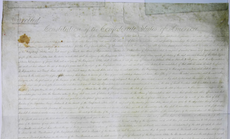William W. Boyce
William Waters Boyce | |
|---|---|
 | |
| Member of the C.S. House of Representatives from South Carolina's 6th district | |
| In office February 18, 1862 – March 18, 1865 | |
| Preceded by | Position established |
| Succeeded by | Position abolished |
| Member of the C.S. Congress from South Carolina | |
| In office February 8, 1861 – February 17, 1862 | |
| Preceded by | Position established |
| Succeeded by | Position abolished |
| Member of the U.S. House of Representatives from South Carolina's 6th district | |
| In office March 4, 1853 – December 21, 1860 | |
| Preceded by | William Aiken |
| Succeeded by | Position abolished George Dargan (1883) |
| Member of the South Carolina House of Representatives | |
| In office 1846–1847 | |
| Personal details | |
| Born | October 24, 1818 Charleston, South Carolina |
| Died | February 3, 1890 (aged 71) |
| Nationality | American |
| Political party | Democratic |
| Alma mater | South Carolina College University of Virginia |
| Occupation | Lawyer |
William Waters Boyce (October 24, 1818 – February 3, 1890) was a slave owner,[1] attorney, South Carolina state politician, and a U.S. Congressman. He was also a prominent Confederate States of America politician during the American Civil War.
Early life and education
Boyce was born in Charleston, South Carolina and attended South Carolina College (now the University of South Carolina) and the University of Virginia. He was admitted to the bar in 1839.
Career
Boyce served in the state House of Representatives from 1846–47. He represented South Carolina in the United States House of Representatives from 1853–60.
He was a representative from South Carolina in the Provisional Confederate Congress, the First Confederate Congress and the Second Confederate Congress from 1861–65. From his position on the C.S. House Committee on Naval Affairs, he was known as partisan of "the coalition against Jeff Davis."[2] He resumed his law practice after the war.
References
- ^ Weil, Julie Zauzmer; Blanco, Adrian; Dominguez, Leo. "More than 1,800 congressmen once enslaved Black people. This is who they were, and how they shaped the nation". Washington Post. Retrieved August 5, 2022.
- ^ Escott, Paul D. (2006). Military Necessity: Civil-Military Relations in the Confedeacy. Greenwood Publishing. p. 19.
- United States Congress. "William W. Boyce (id: B000713)". Biographical Directory of the United States Congress.
- Articles with short description
- Short description is different from Wikidata
- Use American English from March 2017
- All Wikipedia articles written in American English
- Use mdy dates from March 2017
- S-aft: 'after' parameter includes the word 'abolished'
- Template:Succession box: 'after' parameter includes the word 'abolished'
- Articles with FAST identifiers
- Articles with VIAF identifiers
- Articles with LCCN identifiers
- Articles with USCongress identifiers
- Articles with SNAC-ID identifiers
- 1818 births
- 1890 deaths
- 19th-century American legislators
- Democratic Party members of the United States House of Representatives from South Carolina
- Deputies and delegates to the Provisional Congress of the Confederate States
- Lawyers from Charleston, South Carolina
- Members of the Confederate House of Representatives from South Carolina
- Politicians from Charleston, South Carolina
- Signers of the Confederate States Constitution
- Signers of the Provisional Constitution of the Confederate States
- People of South Carolina in the American Civil War
- University of South Carolina alumni
- 19th-century American lawyers
- All stub articles
- South Carolina politician stubs
